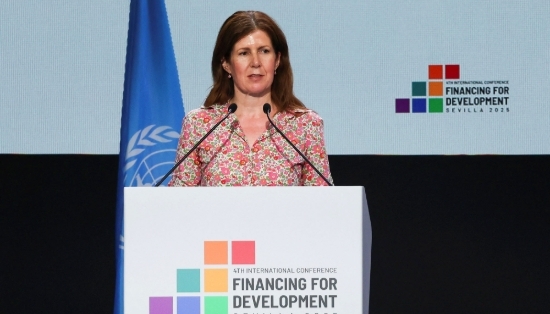A recent cabinet shake-up by the British Prime Minister has cast doubt on the opposition Labour Party’s ambitious plans to redefine the UK’s relationship with Africa, exposing internal divisions within the government over its own continental strategy.
LONDON – Announced in September, the British Prime Minister’s latest cabinet reshuffle is having ripple effects beyond domestic politics, effectively applying the brakes to the Labour party’s detailed designs for a renewed partnership with Africa. The move comes as the governing Conservative party itself shows emerging signs of dissent and uncertainty over its next steps on the continent.
The Labour Party, leading significantly in opinion polls ahead of the next general election, had been actively crafting a foreign policy platform that promised a decisive break from what it termed “the government’s neglectful and inconsistent approach to Africa.” Key pillars of this proposed “African reset” included a shift from a purely aid-based relationship to one focused on mutual economic partnership, climate-focused investment, and a more equitable diplomatic stance.
However, the promotion of several key figures within the current government—and the sidelining of others—has reshuffled the political deck. The new ministerial team in charge of international development and foreign affairs is perceived as being more focused on other geopolitical priorities, leaving Labour’s carefully laid plans in a state of political limbo until after the election.
“This reshuffle is a clear signal that for the current government, Africa remains a secondary concern, a talking point rather than a strategic priority,” commented Dr. Amara Nwosu, a Senior Fellow for Africa-UK Relations at the Chatham House think tank. “It creates a policy vacuum that frustrates not only the opposition but also African partners seeking stable, long-term engagement from London.”
Cracks in the Government’s Own Africa Strategy
Compounding the situation are reports of internal disagreements within the UK government itself. According to sources familiar with the matter, a strategic review of the UK’s engagement in Africa has stalled due to competing visions between the Foreign Office and the Department for Business and Trade.
One faction is said to advocate for a foreign policy-driven approach, prioritizing security cooperation and diplomatic alliances. The other pushes for an economic strategy that would position the UK as Africa’s investment partner of choice, a vision that sometimes clashes with the former on issues of human rights and governance conditionality.
This internal dissent leaves the UK’s current Africa policy appearing fragmented and reactive, just as Labour sought to capitalize by presenting a coherent alternative. The lack of a clear, bipartisan consensus on the UK’s role in a rapidly transforming Africa, analysts argue, ultimately undermines British influence and creates uncertainty for its partners on the continent.
“The most damaging outcome of this political turbulence in London is not for Labour or the Conservatives, but for Africa,” notes Sékou Konaté, a political economist based in Accra. “Nations are looking for reliable, predictable partners. This ongoing hesitation and internal debate in the UK makes it difficult for African leaders to see it as a strategic anchor, especially when compared to the more consistent, albeit also complex, engagements from other global powers.”
With an election on the horizon, the future of the UK-Africa relationship hangs in the balance. The Prime Minister’s reshuffle may have temporarily stalled Labour’s ambitions, but it has also spotlighted a deeper crisis of direction in British foreign policy towards the continent—a vacuum that all parties will be forced to address.

Leave a Reply